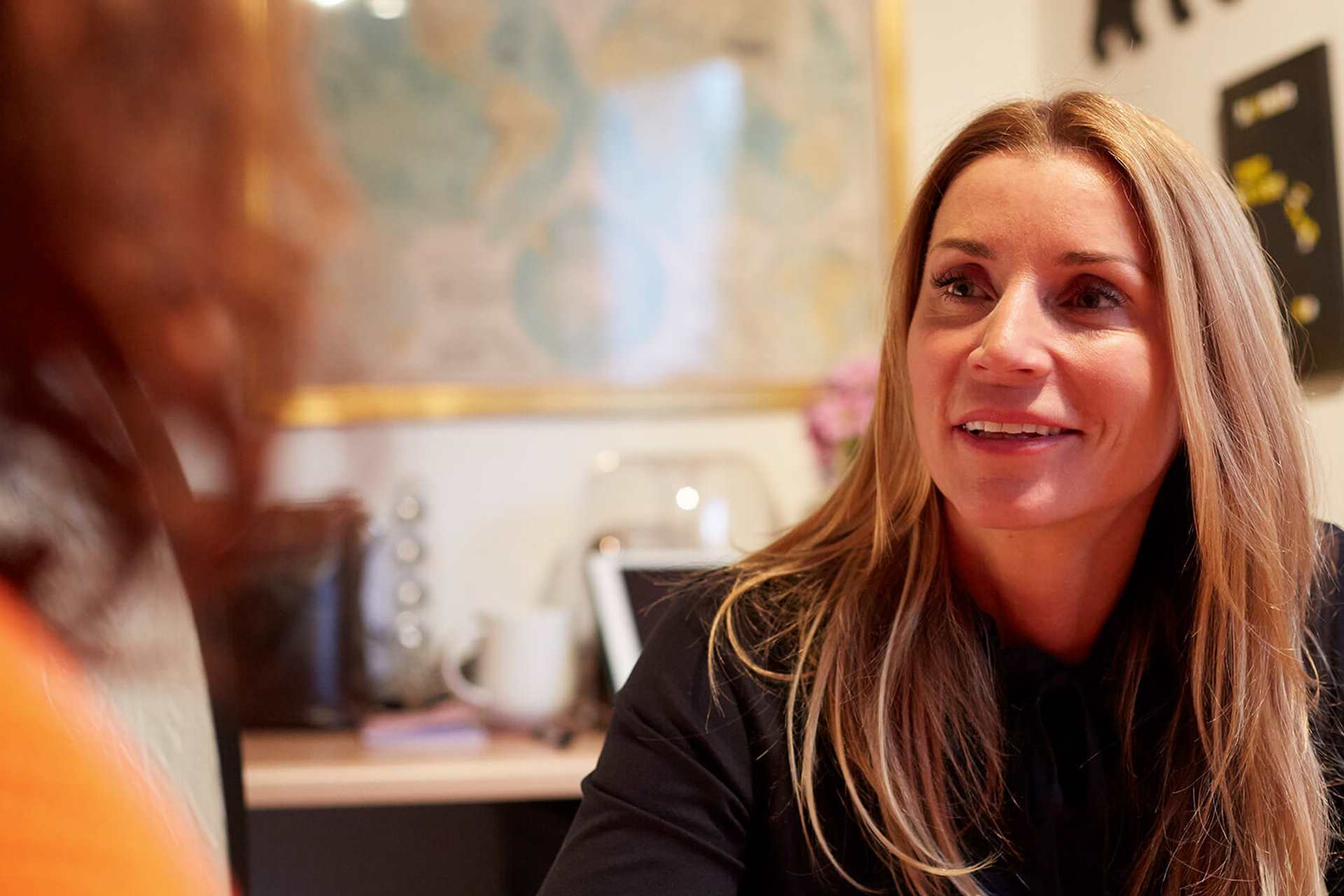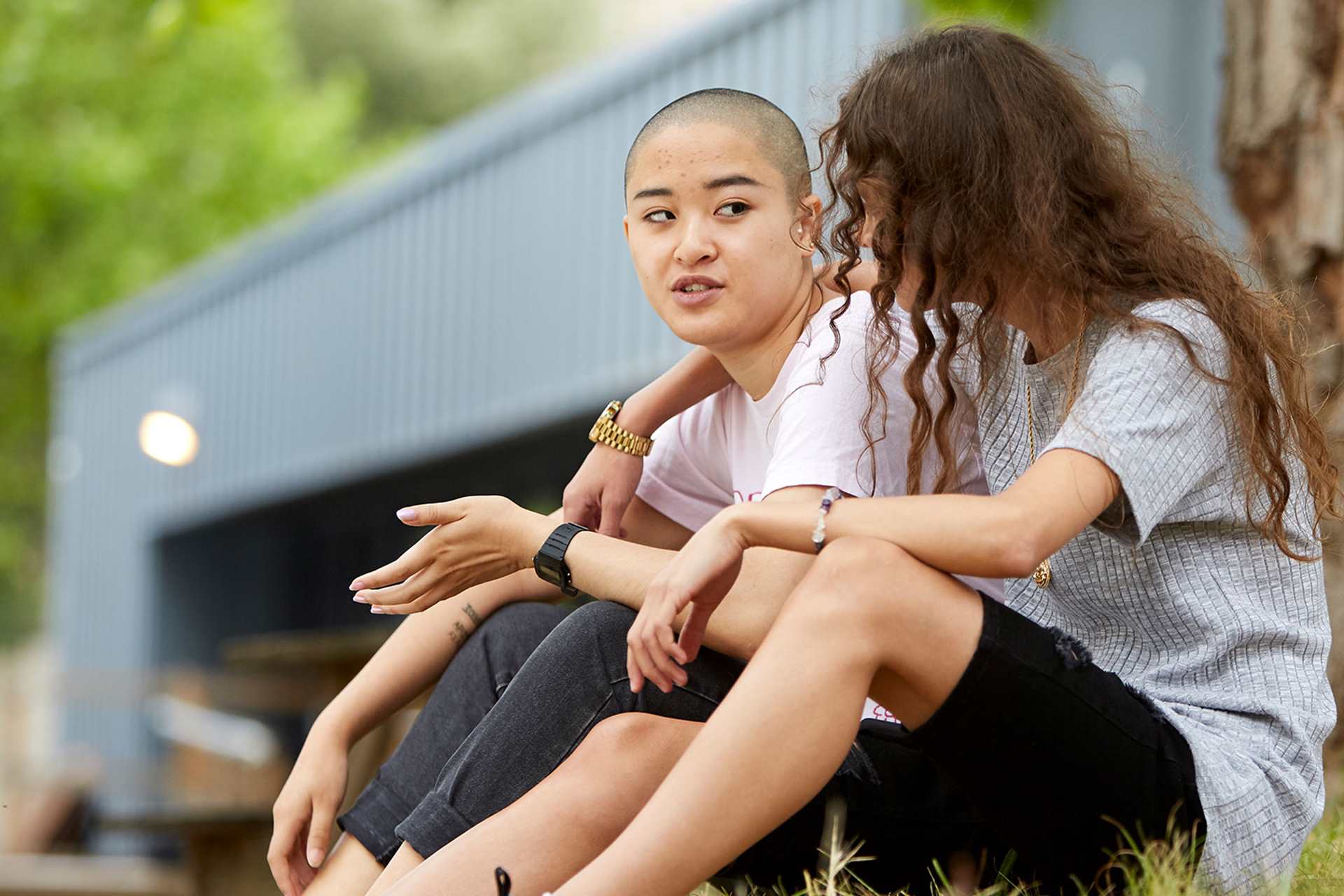Topics mentioned: anxiety, panic attacks, problems at school
About: Selective mutism is an anxiety disorder where a person is unable to speak in certain situations or with certain people. Read Beth's story.
Kids in my class would ask me questions and tease me, and I would be dead silent.
When I was four years old, I had selective mutism.
I walked into school, on my very first day, and just stopped speaking. A teacher would call my name in the register and I would stare at them until we made eye contact. Then I would nod. Kids in my class would ask me questions and tease me, and I would be dead silent.
Selective mutism is a severe form of anxiety which stops a person from speaking in social situations. Such environments include classrooms, shops, group meetings or around people they don’t see very often. Symptoms include clinginess, low mood and frustration, which can come across as rude. They may not be rude - but it’s easy to come to that conclusion if you don’t know the whole story.
It was a mixture of change in location, getting older and meeting a teacher who completely brought me out of my shell, without even realising.
My spell of selective mutism lasted for three years - the whole of infant school. It was a confusing time. I was picked on by my classmates and some teachers. I had a lot of anger built up which I would take out on my parents when I got home. No one was entirely sure what was wrong with me - and I couldn’t exactly explain it to them.
So it came as quite a shock when I entered primary school and started speaking like I’d been doing it all along. Something shifted in my brain. It was a mixture of change in location, getting older and meeting a teacher who completely brought me out of my shell, without even realising.
I’m stubborn - always have been, always will be. So when kids ran out of the classroom to tell my mum that I had been speaking in class for the first time - I rolled my eyes and said "yeah, so what?"
Mainly, I think it was because she didn’t treat me any differently to anyone else in the classroom.
My teacher told us on our first day in that class that she had taught music and dance after school. I was given a violin and I was also told to stand up and sing in front of the class alone. I can’t remember what was going through my head but I got up and did it.
I think it was because she told me to. I think it was because she didn’t really know my history of not speaking. But mainly, I think it was because she didn’t treat me any differently to anyone else in the classroom.
She was also a little scary, but I needed that intimidation. It was time.
In this case, I never actually asked for help. I had friends around me who tried to help. They would speak for me and were very protective of me in large groups. I wasn’t shy - I would play with people at lunchtime. But up until I started with this new teacher, no one really knew how to help.
It takes time, resilience and acceptance. It also takes a distraction - like music, in my case - to make them feel a part of something.
I think it’s very important to not make a big deal about someone with an anxiety disorder. If someone is having a panic attack, the last thing that person needs is for someone to start panicking with them.
Therefore, if someone has selective mutism, they do not need to be asked a thousand questions which they are not going to be able to answer. It takes time, resilience and acceptance. It also takes a distraction - like music, in my case - to make them feel a part of something.
They don’t need overpraising or singling out. They just want to feel normal, whatever ‘normal’ is. Give them breathing space and if you’re that person who they feel comfortable talking to, let them talk for as long as they need.
They don’t need overpraising or singling out. They just want to feel normal, whatever ‘normal’ is.
Where to get help
If you're struggling with your mental health, you are not alone.
-
Samaritans
Whatever you're going through, you can contact the Samaritans for support. N.B. This is a listening service and does not offer advice or intervention.
- Opening times:
- 24/7
-
Childline
If you’re under 19 you can confidentially call, chat online or email about any problem big or small.
Sign up for a free Childline locker (real name or email address not needed) to use their free 1-2-1 counsellor chat and email support service.
Can provide a BSL interpreter if you are deaf or hearing-impaired.
Hosts online message boards where you can share your experiences, have fun and get support from other young people in similar situations.
- Opening times:
- 24/7






